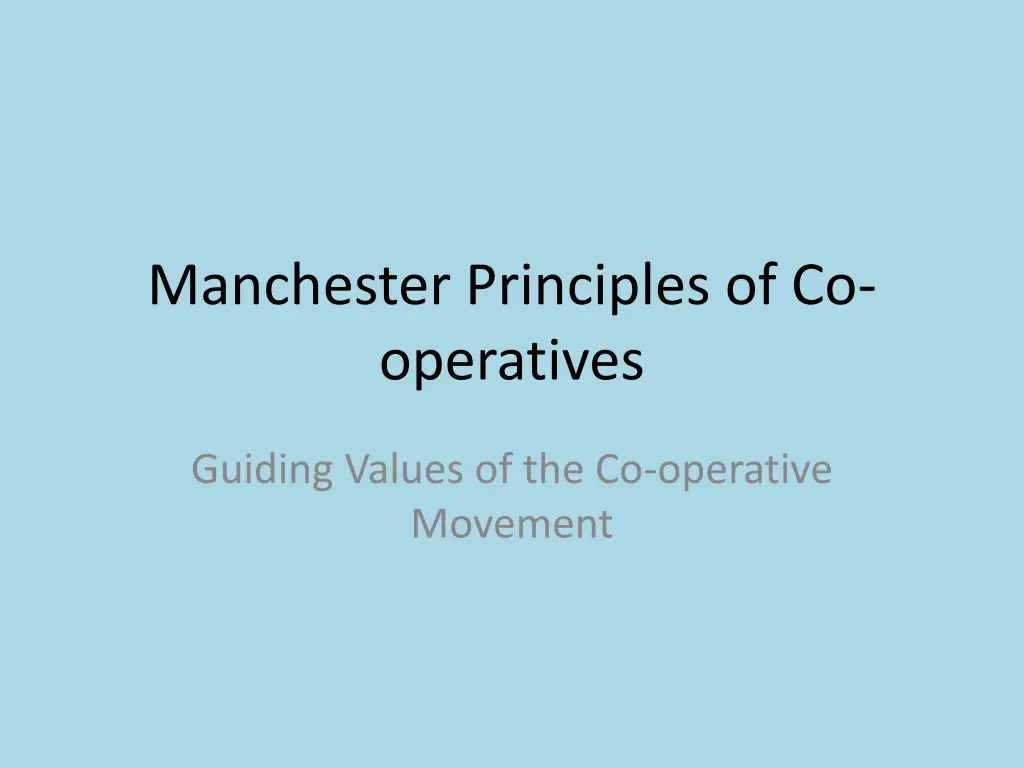
Guiding Values of Co-operatives: The Manchester Principles Explained
Discover the Manchester Principles, established by the International Co-operative Alliance in 1995, defining essential values for co-operatives worldwide. Explore key principles like voluntary membership, democratic control, economic participation, autonomy, education, cooperation, and community focus.
Download Presentation

Please find below an Image/Link to download the presentation.
The content on the website is provided AS IS for your information and personal use only. It may not be sold, licensed, or shared on other websites without obtaining consent from the author. If you encounter any issues during the download, it is possible that the publisher has removed the file from their server.
You are allowed to download the files provided on this website for personal or commercial use, subject to the condition that they are used lawfully. All files are the property of their respective owners.
The content on the website is provided AS IS for your information and personal use only. It may not be sold, licensed, or shared on other websites without obtaining consent from the author.
E N D
Presentation Transcript
Manchester Principles of Co- operatives Guiding Values of the Co-operative Movement
Introduction - The Manchester Principles were developed to define co-operative values and practices. - Established by the International Co-operative Alliance (ICA) in 1995. - They serve as a foundation for co-operatives worldwide.
1. Voluntary and Open Membership - Co-operatives are open to all people willing to accept responsibilities of membership. - No discrimination based on gender, social, racial, political, or religious factors.
2. Democratic Member Control - Co-operatives are democratic organizations controlled by their members. - Members actively participate in setting policies and making decisions. - Each member has equal voting rights (one member, one vote).
3. Member Economic Participation - Members contribute financially and control the capital of the co-operative. - A portion of the surplus is reinvested in the co-operative for growth and development. - Benefits are distributed fairly among members.
4. Autonomy and Independence - Co-operatives are independent organizations controlled by their members. - Any agreements with external organizations must maintain the democratic control of members.
5. Education, Training, and Information - Co-operatives provide education and training to members, employees, and communities. - Ensures informed participation and public awareness of co-operative values.
6. Cooperation Among Co- operatives - Co-operatives work together to strengthen the movement. - Local, national, and international collaboration helps promote growth and success.
7. Concern for Community - Co-operatives contribute to sustainable development of their communities. - They focus on social responsibility and ethical business practices.
Conclusion - The Manchester Principles guide co- operatives in achieving fairness and sustainability. - They promote democracy, equality, and social responsibility. - Co-operatives play a vital role in economic and social development.
Thank You! Any Questions?






















